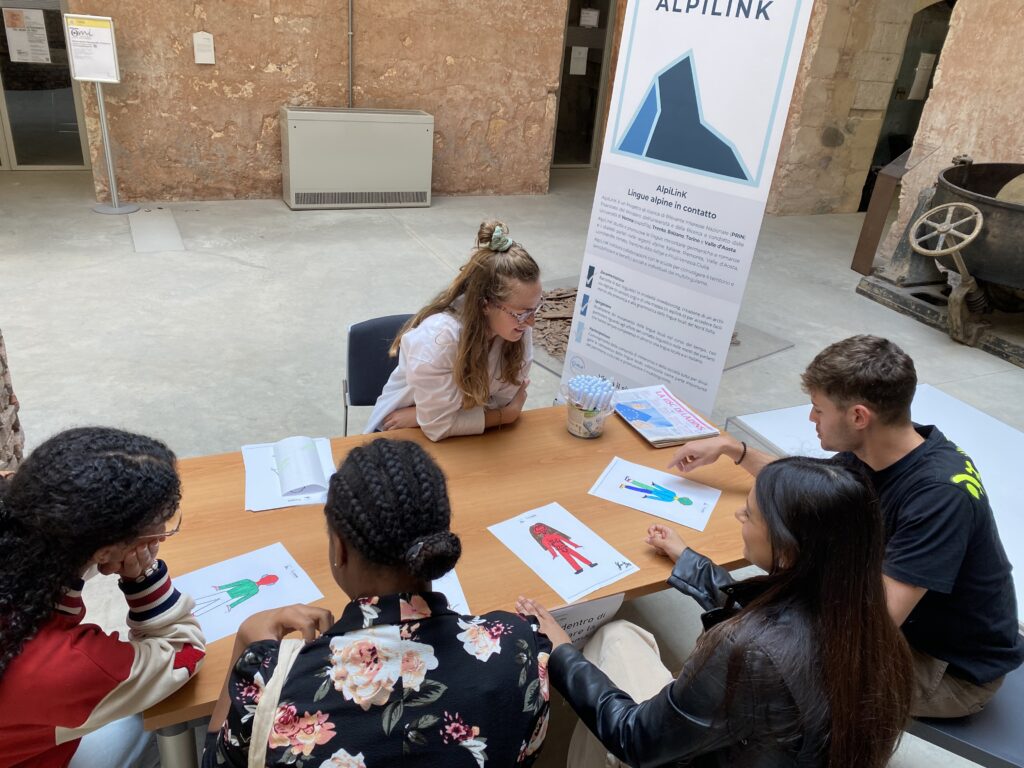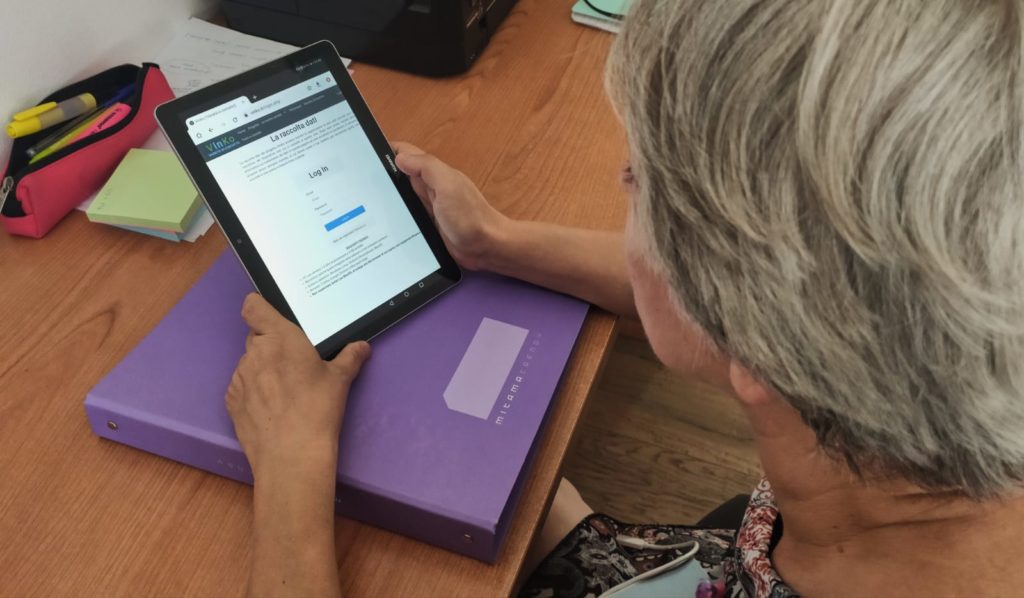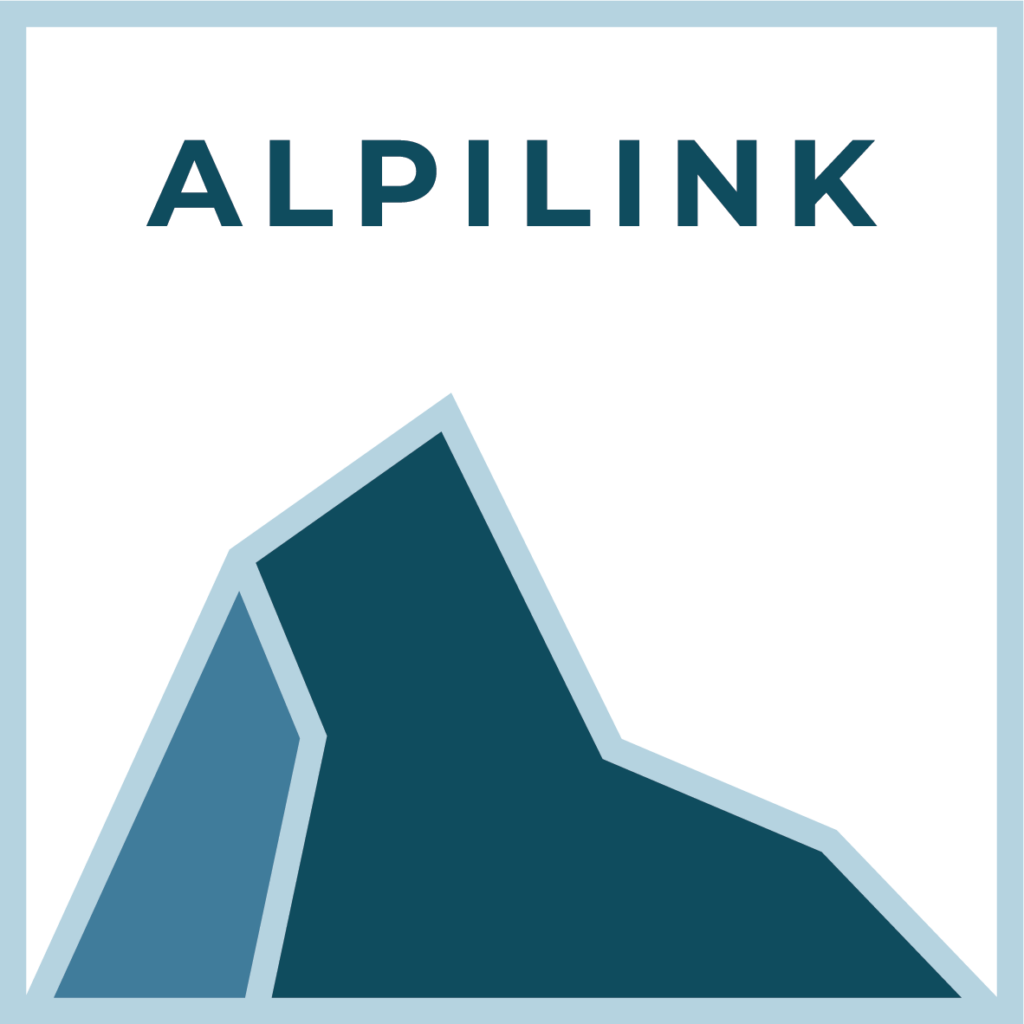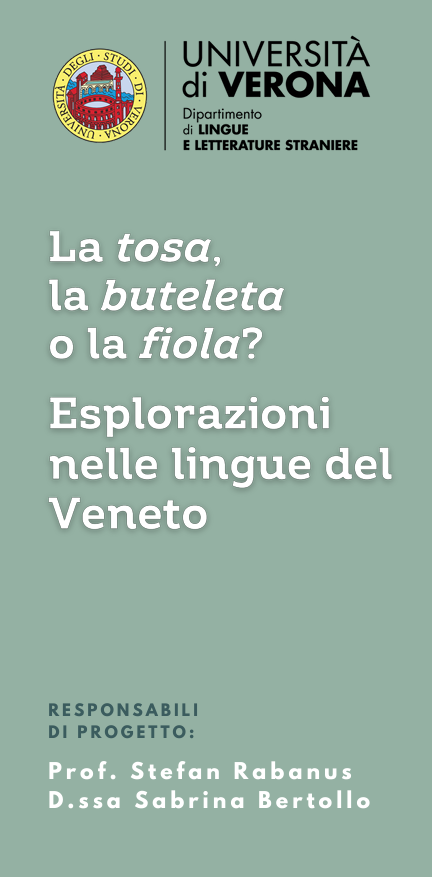The term ‘VinKiamo’ originates from a collaboration between the University of Verona and the Regional School Office for Veneto in 2021 and it is now used to cover all AlpiLinK activities carried out in collaboration with schools, regardless of region. VinKiamo constitutes the most important part of the participatory aspect of AlpiLinK and the project works with numerous schools in Veneto, Friuli-Venezia Giulia, South Tyrol, Trentino and Aosta Valley (please find the links to region-dedicated websites at the end of the page). Three types of interconnected activities are offered:
VinKiamo
Collaboration with schools and their students

Raising awareness of multilingualism/plurilingualism
All activities in the VinKiamo context include raising the students’ awareness of historic multilingualism and its value for the territory and of individual plurilingualism and its cognitive benefits. One way of achieving this is via an activity called ‘linguistic autobiography’. In this activity students are challenged to think more critically about their own linguistic repertoire. Students are presented with a human silhouette and asked to color it in, using a different color for every different language in their repertoire. The first step is to think about the languages they know, which can range from the languages learnt at school to local dialects and minority languages or include languages of recent migration. The second step is to think about the role of each language in their lives and their competency and then decide how this affects the placement of the language on the silhouette (see this flyer for an example of a unit of teacher training and workshops in class). Another Vinkiamo activity aimed at raising awareness was done in cooperation with a primary school located in a Veneto highland area. It explored the benefits of plurilingualism on language skill development in typically developing learners and learners with developmental dyslexia. The project consisted of the assessment of reading skill development in monolingual and bilingual children, the implementation of a learning path to strengthen the children’s morphological skills (useful for comprehending written texts), and teacher training. The main goal was to promote local multilingualism, in this area typically of Italian and local/minority languages, and raising awareness of the benefits of multilingualism for language skill development in typically and atypically developing learners.

Data collection and active citizenship
The VinKiamo activities are originally intended for students in secondary school and are aimed at making students take active part in scientific data collection. Through the data collection, VinKiamo is deeply intertwined with the AlpiLinK project, just as it was in the past with the VinKo project (hence the name “VinKiamo”). Participation in the data collection allows students to improve their digital, linguistic and active citizenship skills. By meeting speakers from different generations and acting as intermediaries between the AlpiLinK crowdsourcing platform and the informants themselves, who may not be able to use IT tools independently, they also develop their interpersonal skills. In 2024 the data collection activities have been extended to the collection of visual representations of language in the public sphere (“Linguistic Landscaping”), e.g. street signs or advertisements. By documenting (photographing), discussing, and analyzing the signs found, the students become more aware of the presence of minority languages, foreign languages (German, English etc.) and dialects in their everyday surroundings. They are also asked to reflect on what the signs are meant to communicate and what they can tell us about local linguistic identities. The collected photographs enrich the “Linguistic Landscape” section of the AlpiLink web portal. The activities contribute to the recognition and preservation of the linguistic minorities and multilingualism that characterizes our territory and to safeguard the intangible linguistic heritage of the Italian Alps.

Data analysis and the scientific method
Building on the data collected (partly) through VinKiamo, available in the “Listen & Explore” section of the web portal, the AlpiLinK team offers further training that creates a link between linguistic research and education in secondary schools. The training aims to promote the use of innovative teaching methodologies that make use of databases and primary source language materials.
The training highlights how the students’ participation with the data collection contributes significantly to scientific research and to gaining a better understanding of how languages work. Specifically, the activities focus on the use of the scientific method for the analysis of linguistic data and the promotion of pluri- and multilingualism. The training consists of meetings with teachers on the one hand and interactive workshops for students held by AlpiLinK team members on the other.
The pilot project entitled “La tosa, la buteleta o la fiola? Explorations in the languages of Veneto” took place in the school year 2023/2024. The teaching materials developed for the workshops can be requested from the AlpiLinK team (see contact information in Team and Contact) and are freely available for use by interested teachers.
Further reading
- Bertollo, Sabrina & Stefan Rabanus (2023): VinKiamo: ein Citizen-Science-Projekt für Schulen zur Förderung von (sprach)übergreifenden Kompetenzen. ALSIC 26(1).

